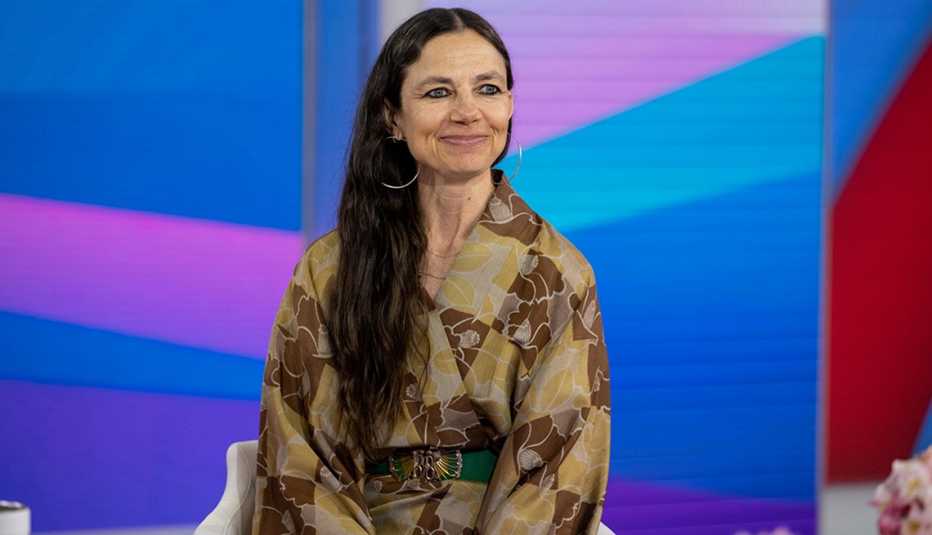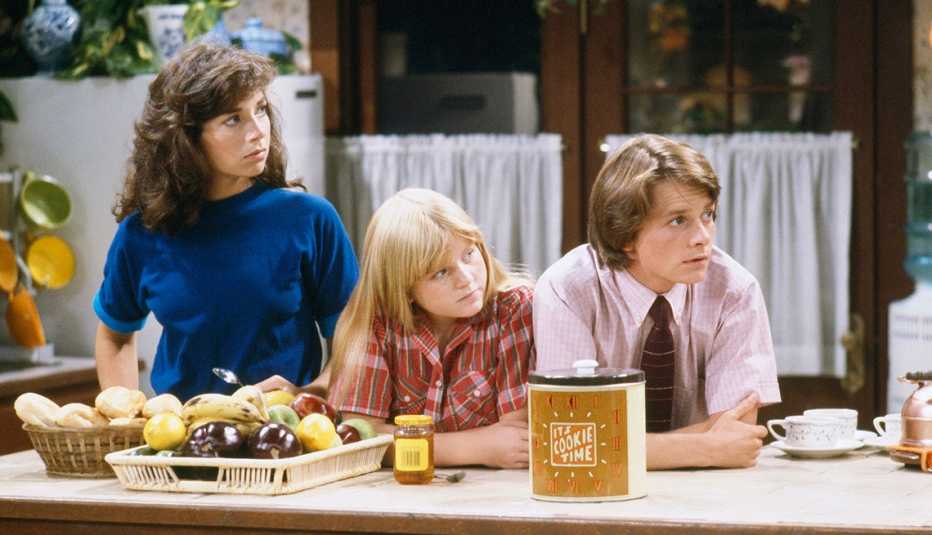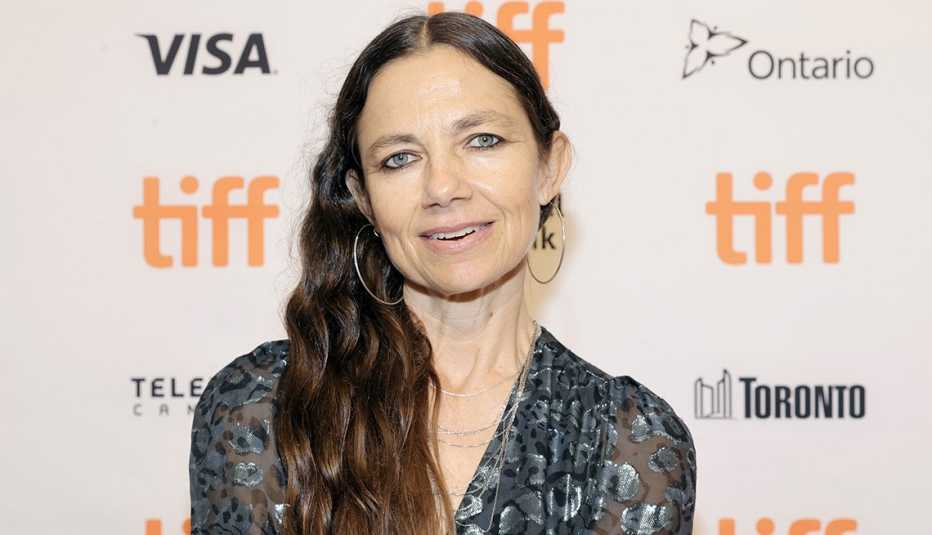AARP Hearing Center
Many people know that unnerving feeling when you Google yourself and find something that bugs you. When actress/writer/producer/director Justine Bateman tried it a while back, the autocomplete after her name read “looks old.”
Yikes. The former teenage and twenty-something TV and movie star was in her early 40s at the time she saw this (she’s 57 now). It bugged her because it wasn’t true, she thought. But it got her thinking about why she reacted that way — why it “pushed her buttons” – as she prepared her 2018 book, Fame: The Hijacking of Reality.
“[The Google result] affected me so much more profoundly and for a much longer time than I thought it could have, and so I needed to get at the root reason why that occurred to me … why I reacted like that,” she told AARP.org in a recent interview about her relaxed philosophy of aging, including in Hollywood.
Among other things, her self-reflection reinforced her determination to never submit to plastic surgery. It’s an unconventional stand for many in the youth-obsessed entertainment industry, and even more remarkable to say so out loud.
But that might be a thing now: Vogue’s vaunted September issue cover featured four women in their 50s who put the super in supermodel: Linda Evangelista, 58, Cindy Crawford, 57, Christy Turlington, 54, and Naomi Campbell, 53. But amid the social media glee about how great they all look lurked disquiet about how that might have been achieved by magazine-style means.
Some online comments “focused on calling out what many viewers see as egregious age erasing” of women “who look so retouched that they seem more like A.I.-generated bots than actual people,” reported the New York Times’ Vanessa Friedman. Bateman’s position rises above all that chatter because she welcomes aging. Here are some of her comments, edited for clarity.
Why is she so open about her personal objection to ‘getting work done’?
Bateman is saying it in public more often as she continues to promote her 2021 book, Face: One Square Foot of Skin, which grew out of her thinking on this issue. Don’t give in to the pressure to “look young” when you no longer are, she says.
“I think a lot of women didn’t know that they could opt out of this idea that their faces are broken and have to be fixed,” Bateman told AARP. “They’re just kind of going along with it, like, I guess I got to do something about it. And I think I was just maybe one of the few people saying, no, no, no, no, no. This is psychotic. … And frankly, at any age, that's insane.”


What’s her reasoning for her position?
Irrational fear is the overriding reason for this kind of thinking, Bateman says, based on her own experiences and emotions, and those of about 20 people she interviewed for Face. But fear can be overcome even in Hollywood, and even after millennia of human societies being “fascinated with the female face.”
“My position is that fear already occurred in you before your face started changing, so it’s got nothing to do with the skin on your face,” she argues. “It’s just a fear that you have.”









































































More From AARP
Women 50+ Feel Pressure to Live Up to Beauty Standards Dictated by Media
As they age, women are more likely to have less self-judgment and embrace their ‘authentic’ selves
Age Defier Martha Stewart, 82: ‘I Don't Want to Have Regrets’
The home and hospitality diva reflects on aging, her setbacks and how she miraculously regained 20/20 vision
Stars Own Their 50+ Bodies in Revealing Swimwear Posts
Forget cover-ups, these women are feeling comfortable in their own skin